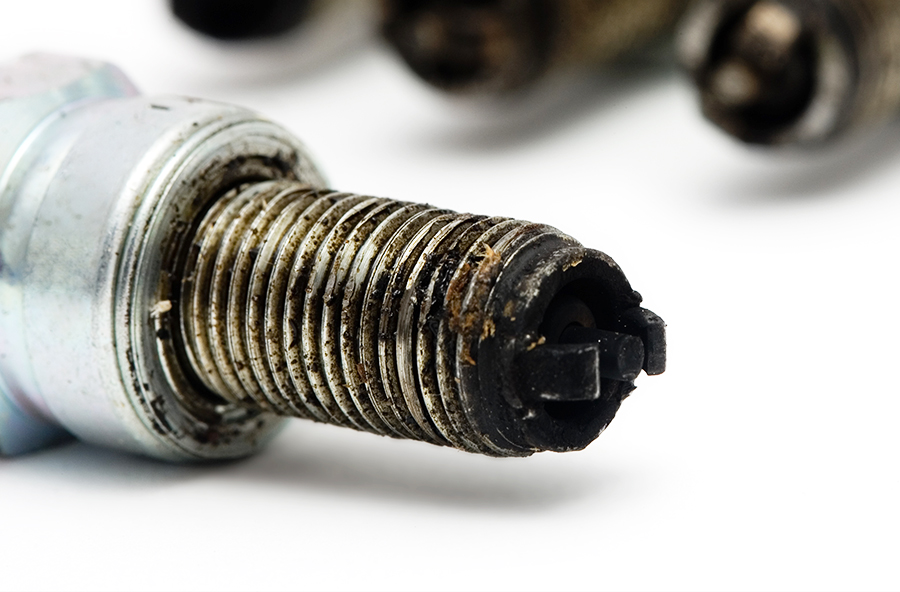Carbon buildup on spark plug tips can make them ineffective over time. The buildup of carbon deposits on the electrodes can cause a number of problems, including poor engine performance, decreased fuel economy, and even engine failure. Web when carbon deposits build up on the electrode of the spark plug, it can interfere with the proper spark ignition, causing the engine to misfire. Cylinder head bolts near the muffler and exhaust port may be longer. Web carbon fouling on a spark plug is caused by a problem with the fuel that you use.
Carbon on a spark plug causes many problems in that particular part and in the performance of your vehicle. The buildup of carbon deposits on the electrodes can cause a number of problems, including poor engine performance, decreased fuel economy, and even engine failure. Web although carbon tracking is usually caused by oil, dirt or moisture creating a path to ground over the spark plug insulator, a severely eroded spark plug electrode will increase firing voltages to the point that the spark will seek the point of least resistance, which is either through the spark plug boot or down the insulator to the metal shell. Engine carbon deposit is a common issue that many vehicle owners face. And before going there, let’s also know how the carbon buildup on a spark plug looks like.
One thing to note is that the spark plug will get damaged quickly if you don’t clean it thoroughly. Web blow off the scrubbed carbon deposits using an air compressor. Using a spark plug cleaner or solvent can be highly effective in removing carbon fouling. Over time, carbon deposits can build up in the engine, causing various problems such as reduced fuel efficiency, decreased engine performance, and increased emissions. These solvents are specifically designed to break down carbon deposits and restore spark plug functionality.
Web spark plug cleaner or solvent: How to check for carbon buildup on spark plugs. Web diagnosing carbon tracking on spark plugs. Let’s discuss these causes in more detail. Engine carbon deposit is a common issue that many vehicle owners face.
Due to this, more gasoline is burnt, leading to increased carbon deposits on the spark plugs. Carbon deposits are conductive and can create a path for spark plug misfire. These solvents are specifically designed to break down carbon deposits and restore spark plug functionality. Once the spark plug of motorcycle (bike) & scooter.
What Follows In The Article From Here, Is The First Section Telling You What Spark Plug’s Look Like When They’re Normal And Functional.
Carbon deposits can conduct electricity. Carbon deposits are conductive and can create a path for spark plug misfire. Carbon on a spark plug causes many problems in that particular part and in the performance of your vehicle. Web dry fouling, or carbon fouling, is often caused by an overly rich condition, and the problem may lie with your air cleaner (clogged) or carburetor.
Web Diagnosing Carbon Tracking On Spark Plugs.
Web the engine has to work harder to get air when the air filter is filthy. Using a spark plug cleaner or solvent can be highly effective in removing carbon fouling. Remove the muffler, muffler guard, and any other components that block access to the cylinder. A misfiring engine can lead to a decrease in overall performance and can even result in damage to other engine components if left untreated.
Web Yes, Carbon On Spark Plugs Is Bad.
And replacing it with a new one is also a good solution. This article will explain spark plug carbon fouling causes and offer advice on how to avoid this problem in the future. A lousy fuel injector or damaged oil seal in that cylinder is the common reason one spark plug keeps fouling. Web carbon fouling on a spark plug is caused by a problem with the fuel that you use.
Technician B Says The Line Could Indicate A Misfiring Spark Plug.
Oil leaks or burning oil can result in the accumulation of oil deposits on the spark plug. That can cause combustion problems, resulting in excess carbon that sticks very quickly to the hot parts of the spark plugs. To avoid confusion, prepare a template. Another common reason is the spark plug is too cold and is operating at a lower temperature than required.
Compressed air is crucial for clearing away any debris or residue from the spark plug. Other possible causes could be low compression, vacuum leak, overly retarded timing, or improper spark plug heat range. Over time, carbon deposits can build up in the engine, causing various problems such as reduced fuel efficiency, decreased engine performance, and increased emissions. Web although carbon tracking is usually caused by oil, dirt or moisture creating a path to ground over the spark plug insulator, a severely eroded spark plug electrode will increase firing voltages to the point that the spark will seek the point of least resistance, which is either through the spark plug boot or down the insulator to the metal shell. Web causes of carbon buildup on spark plugs.








Ads